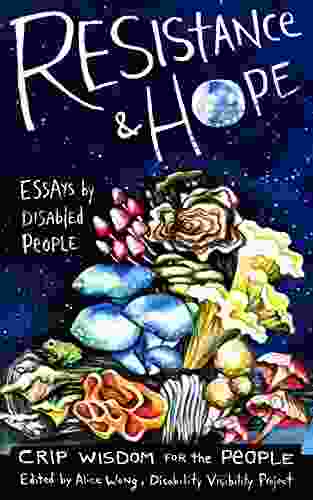Taxi Urban Economies and the Social and Transport Impacts of the Taxicab

The Taxi Urban Economy
The taxi industry is a major economic driver in many cities around the world. Taxis provide employment for millions of people and generate billions of dollars in revenue each year. The taxi industry is also a significant contributor to local economies, as taxis are often used by tourists and business travelers.
4.3 out of 5
| Language | : | English |
| File size | : | 2104 KB |
| Text-to-Speech | : | Enabled |
| Screen Reader | : | Supported |
| Enhanced typesetting | : | Enabled |
| Print length | : | 99 pages |
| Lending | : | Enabled |
| Hardcover | : | 208 pages |
| Item Weight | : | 1.15 pounds |
| Dimensions | : | 6.5 x 0.75 x 9.75 inches |
The taxi industry is a complex one, with many different stakeholders. These stakeholders include taxi drivers, taxi companies, local governments, and taxi riders. Each of these stakeholders has a different perspective on the taxi industry, and their interests often conflict.
Taxi drivers are the most important stakeholders in the taxi industry. They are the ones who provide the service to riders, and they rely on the taxi industry for their livelihood. Taxi drivers are often independent contractors, and they have little control over the rates they charge or the conditions under which they work.
Taxi companies are another important stakeholder in the taxi industry. Taxi companies own and operate the taxis that are used by drivers. They are responsible for setting rates and regulating the industry. Taxi companies also provide a variety of services to drivers, such as insurance and maintenance.
Local governments are also stakeholders in the taxi industry. Local governments have the authority to regulate the taxi industry, and they often set rates and impose other restrictions on taxis. Local governments also provide a variety of services to the taxi industry, such as taxi stands and enforcement of traffic laws.
Taxi riders are the final stakeholder in the taxi industry. Taxi riders are the ones who use the service provided by taxis. They are interested in getting a safe, affordable, and convenient ride. Taxi riders often have little knowledge of the taxi industry, and they rely on taxi drivers and taxi companies to provide them with a good experience.
Social Impacts of Taxicabs
The taxicab industry has a number of social impacts. These impacts include:
- Job creation: The taxi industry provides employment for millions of people around the world. Taxi drivers are often the backbone of the local economy, and they provide a valuable service to the public.
- Economic mobility: Taxis provide a way for people to get around the city, regardless of their income or social status. Taxis are often the only way for people to get to work, school, or other important destinations.
- Social inclusion: Taxis help to break down social barriers and bring people together. Taxis are often used by people from different backgrounds, and they provide a way for people to interact with each other.
- Safety: Taxis provide a safe way for people to get around the city. Taxis are often equipped with security cameras and other safety features, and they are driven by experienced drivers.
Transport Impacts of Taxicabs
The taxicab industry also has a number of transport impacts. These impacts include:
- Traffic congestion: Taxis often contribute to traffic congestion, as they are often used to travel in and out of the city center. Taxis can also block traffic lanes when they are parked or waiting for fares.
- Air pollution: Taxis are a major source of air pollution, as they often idle their engines while waiting for fares. Taxis also contribute to greenhouse gas emissions, as they use a lot of fuel.
- Noise pollution: Taxis can be a source of noise pollution, as they often honk their horns or play loud music.
- Land use: Taxis require a lot of space, as they need to be parked or waiting for fares. Taxis can also contribute to urban sprawl, as they encourage people to live and work in far-flung suburbs.
The Future of the Taxi Industry
The taxi industry is facing a number of challenges in the 21st century. These challenges include:
- Ride-hailing services: Ride-hailing services, such as Uber and Lyft, are a major threat to the taxi industry. Ride-hailing services are often cheaper and more convenient than taxis, and they are also available in more areas.
- Self-driving cars: Self-driving cars are another major threat to the taxi industry. Self-driving cars will eliminate the need for taxi drivers, and they will also be more efficient and cheaper than taxis.
- Urbanization: Urbanization is a major trend that is impacting the taxi industry. As more people move to cities, the demand for taxis is increasing. However, urbanization is also leading to traffic congestion and other challenges for the taxi industry.
The taxi industry is adapting to these challenges in a number of ways. These adaptations include:
- Investing in technology: The taxi industry is investing in technology to improve its services. This includes investing in mobile apps, GPS systems, and other technologies.
- Partnering with ride-hailing services: Some taxi companies are partnering with ride-hailing services to offer a more comprehensive service to customers.
- Going green: The taxi industry is going green by investing in electric vehicles and other fuel-efficient technologies.
- Focusing on customer service: The taxi industry is focusing on customer service to differentiate itself from ride-hailing services. This includes providing a safe, reliable, and convenient service.
The taxi industry is a resilient industry, and it has survived many challenges in the past. The taxi industry is adapting to the challenges of the 21st century, and it is likely to continue to be a major part of the urban transportation landscape for many years to come.
The taxi urban economy is a complex and dynamic one. The taxicab industry has a significant impact on the social and transport landscape of cities. The taxi industry is facing a number of challenges in the 21st century, but it is adapting to these challenges and is likely to continue to be a major part of the urban transportation landscape for many years to come.
4.3 out of 5
| Language | : | English |
| File size | : | 2104 KB |
| Text-to-Speech | : | Enabled |
| Screen Reader | : | Supported |
| Enhanced typesetting | : | Enabled |
| Print length | : | 99 pages |
| Lending | : | Enabled |
| Hardcover | : | 208 pages |
| Item Weight | : | 1.15 pounds |
| Dimensions | : | 6.5 x 0.75 x 9.75 inches |
Do you want to contribute by writing guest posts on this blog?
Please contact us and send us a resume of previous articles that you have written.
 Book
Book Novel
Novel Page
Page Chapter
Chapter Story
Story Genre
Genre Library
Library Paperback
Paperback E-book
E-book Newspaper
Newspaper Paragraph
Paragraph Glossary
Glossary Foreword
Foreword Preface
Preface Synopsis
Synopsis Manuscript
Manuscript Tome
Tome Classics
Classics Biography
Biography Autobiography
Autobiography Encyclopedia
Encyclopedia Thesaurus
Thesaurus Narrator
Narrator Character
Character Librarian
Librarian Card Catalog
Card Catalog Stacks
Stacks Study
Study Scholarly
Scholarly Lending
Lending Reserve
Reserve Journals
Journals Reading Room
Reading Room Special Collections
Special Collections Literacy
Literacy Study Group
Study Group Thesis
Thesis Awards
Awards Theory
Theory Textbooks
Textbooks Valeria Aloe
Valeria Aloe Saxon Andrew
Saxon Andrew Ivana Soldat
Ivana Soldat Kerstin Wartberg
Kerstin Wartberg Neal Stephenson
Neal Stephenson Ken Follett
Ken Follett Louise Meintjes
Louise Meintjes Alice Wong
Alice Wong Callie Gardner
Callie Gardner Margaret Atwood
Margaret Atwood Rob Sanders
Rob Sanders Theresa Tomlinson
Theresa Tomlinson Karen Mcwilliams
Karen Mcwilliams Helen Ellis
Helen Ellis Dosho Port
Dosho Port Orlando Ricardo Menes
Orlando Ricardo Menes Susan Wiggs
Susan Wiggs Pratima Mitchell
Pratima Mitchell Gary Mottram
Gary Mottram The Gig Economist
The Gig Economist
Light bulbAdvertise smarter! Our strategic ad space ensures maximum exposure. Reserve your spot today!
 Fernando BellFollow ·13.3k
Fernando BellFollow ·13.3k Edgar Allan PoeFollow ·8.2k
Edgar Allan PoeFollow ·8.2k Michael CrichtonFollow ·18.1k
Michael CrichtonFollow ·18.1k Ira CoxFollow ·18.6k
Ira CoxFollow ·18.6k Scott ParkerFollow ·9.2k
Scott ParkerFollow ·9.2k Branson CarterFollow ·13k
Branson CarterFollow ·13k Derrick HughesFollow ·18.7k
Derrick HughesFollow ·18.7k Duane KellyFollow ·10.4k
Duane KellyFollow ·10.4k

 Fletcher Mitchell
Fletcher MitchellEducation And Peace Montessori 10: Where Learning...
A Symphony of Learning and Well-being Amidst...

 Glen Powell
Glen PowellUnveiling the Wonders of Language and Literacy...
Language and literacy...

 Rod Ward
Rod WardThe Portable Benjamin Franklin: A Timeless Collection of...
In the vast tapestry of American history,...

 Kelly Blair
Kelly BlairDemocracy Versus Authoritarianism in the Post-Pandemic...
The COVID-19...

 Colin Richardson
Colin RichardsonGet Inspired To Shoot Over 130 Poses
Are you looking for...

 Jared Nelson
Jared NelsonEmbark on a Shadowy Journey: The Forbidden Wilds and...
Prologue: A Realm Enshrouded in Darkness As...
4.3 out of 5
| Language | : | English |
| File size | : | 2104 KB |
| Text-to-Speech | : | Enabled |
| Screen Reader | : | Supported |
| Enhanced typesetting | : | Enabled |
| Print length | : | 99 pages |
| Lending | : | Enabled |
| Hardcover | : | 208 pages |
| Item Weight | : | 1.15 pounds |
| Dimensions | : | 6.5 x 0.75 x 9.75 inches |











